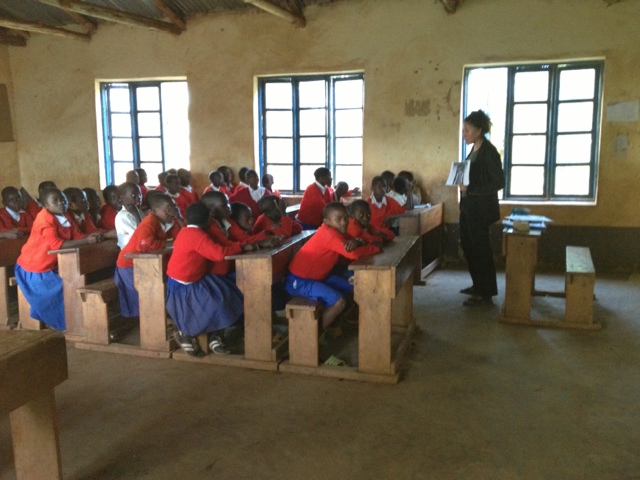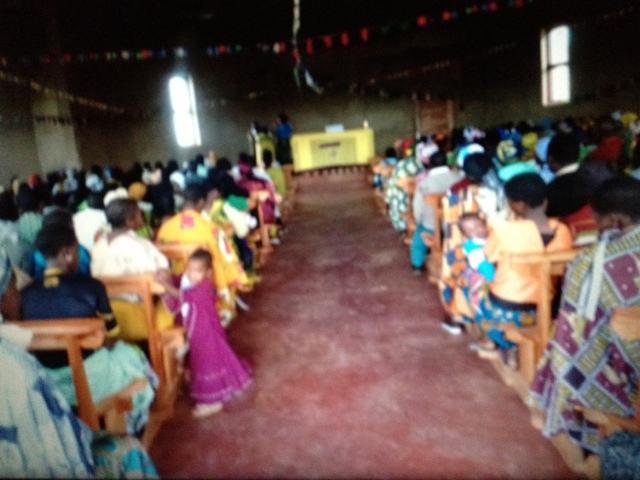I've been teaching, training, and promoting effortlessly the importance and gravity of malaria prevention and educating the basic of malaria science to my community, a farming village in the Southern Highlands, where this potentially fatal tropical disease is not prevalent.
To my disbelief, given that Tanzania is the 3rd largest population for malaria endemic, my community is not well versed in malaria awareness, let alone do people sleep under a mosquito net...insecticide treated or not.
Possibly due to the history of low malaria cases, people may not feel it vitally essential to be imparted. Clearly, malaria prevention education should be part of a brief mandatory curriculum in school. Lives can be saved by an hour of malaria indoctrination.
I've taught students at primary schools, secondary school and to community members where several hundred were in attendance and trained school teachers and dispensary workers. I will continue to "preach" the gospel of malaria truth to those I've not yet reached.
Several notable details and its compelling ramifications:
1. Unexpectedly, I was thanked by two students in a primary school who expressed their gratitude with such happiness, that I was temporarily stunned and speechless. To have these students step out of their comfort zone of being painfully shy and unresponsive to suddenly articulate with such animated expression was truly somewhat shocking. They owe me nothing as it is my job to teach, but knowing these usually passively quiet students all of the sudden voicing their feeling was worth a million dollars in experience. They thanked me for teaching them about malaria because they were not aware that malaria could kill. Needless to say, the simple "thank you" was enough to keep me motivated in my malaria outreach effort. My first positive Peace Corps experience where I'm witnessing an impact.
2. I enjoy teaching high school students, my favorite audience. Their maturity and interest level are sufficient to keep them continually engaged. After 2 hours of in-depth malaria lesson, instead of dozing into slumberland, I'm bombarded by questions at the end. To me, this is a fantastic sign that the teens are truly curious and interested. Importantly, they're paying attention!
3. One elementary student enjoys malaria lessons so much that he would request more malaria instead of English lesson. Each class received from me 5 hours of malaria education where I incorporate straight up lecture, games and an audio teaching tool.
4. After finished teaching several hundred villagers, a woman came up on stage to ask a question regarding one of three methods for malaria testing. She claimed in our village dispensary, there exists no Rapid Diagnostic Testing. Certain that she is mistaken or her attempt to challenge me, I asked her how she would know? She claimed she entered the dispensary and there was none. My reply was I'm fairly confident there definitely exists these kits, but i will verify with the dispensary. She was not pleased with my self-assurance and with her disparaging smile, she left the stage smirking that she's had enough of malaria education. Some people in the audience chuckled which I didn't see anything amusing. I did coincidently meet up with the medical officer shortly and inquired about the availability of these kits. He confirmed its existence. He proceeded to tell me that they always test negative even if by clinical diagnoses, the patients appear positive. I informed him that these kits needed to be kept out of heat and humidity, check for expiration date and importantly, they need to have a waiting time of 20 minutes for the test result to appear positive or negative. To my surprise, this medically trained personnel had no idea about any of these points. He tells me that he only waits for 2 minutes before reading the result. If it wasn't for the lady and her assertion of the unavailability of the kits, the village dispensary medical officer and I would not have had this important, fact revealing discussion about the proper usage of RDT kits.
5. The medical officer and the head teacher of a secondary school both tell me that people do not want nor use mosquito nets. Presently, 300 nets are in storage at our local dispensary. I ask why this is? It is free to villagers and not complicated to use. What is the problem? The explanations I was given were all faulty with no base of any logic. Villagers hold tightly to their beliefs. Myths need to be banished as they are a total disservice to the well being of people. It is difficult to change one's behavior; only with constant education would one be motivated to change for the positive.







No comments:
Post a Comment